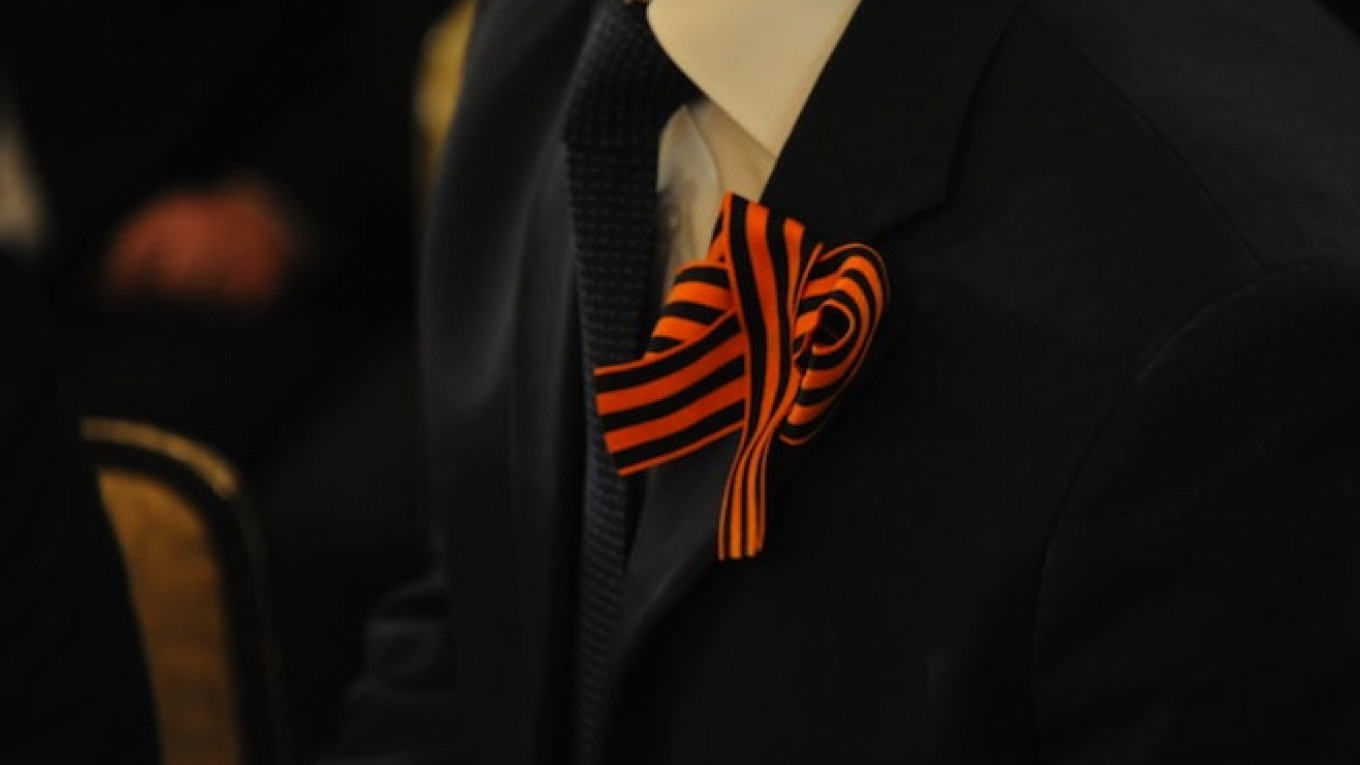The orange and black ribbon of St. George could be largely absent from Victory Day celebrations in western Ukraine this year after an institute proposed an alternative to the symbol, which has come to be associated with pro-Russian separatist movements.
In a published on its website, the Institute of National Remembrance asked Ukrainian citizens and media to use the European symbol for war victims, the scarlet poppy.
"The scarlet poppy is both a European and a Ukrainian symbol," head of the institute Volodymyr Vyatrovich said, according to the statement. "Our songs say that poppies bloom where Cossack blood has been spilled."
The new symbol was put forward by Kharkiv designer Sergei Mishakin and features the words "Never Again."
The St. George ribbon's origins date back to the reign of Catherine the Great and it is adorned by many Russians on Victory Day, which falls on May 9, to commemorate the victory over the Nazis in World War II.
It was worn by pro-Kremlin politicians to show their support for Russia's annexation of Crimea and their disapproval of the interim government in Kiev, but also by separatists who have seized government buildings in the eastern Ukraine.
See also:
A Message from The Moscow Times:
Dear readers,
We are facing unprecedented challenges. Russia's Prosecutor General's Office has designated The Moscow Times as an "undesirable" organization, criminalizing our work and putting our staff at risk of prosecution. This follows our earlier unjust labeling as a "foreign agent."
These actions are direct attempts to silence independent journalism in Russia. The authorities claim our work "discredits the decisions of the Russian leadership." We see things differently: we strive to provide accurate, unbiased reporting on Russia.
We, the journalists of The Moscow Times, refuse to be silenced. But to continue our work, we need your help.
Your support, no matter how small, makes a world of difference. If you can, please support us monthly starting from just $2. It's quick to set up, and every contribution makes a significant impact.
By supporting The Moscow Times, you're defending open, independent journalism in the face of repression. Thank you for standing with us.
Remind me later.






